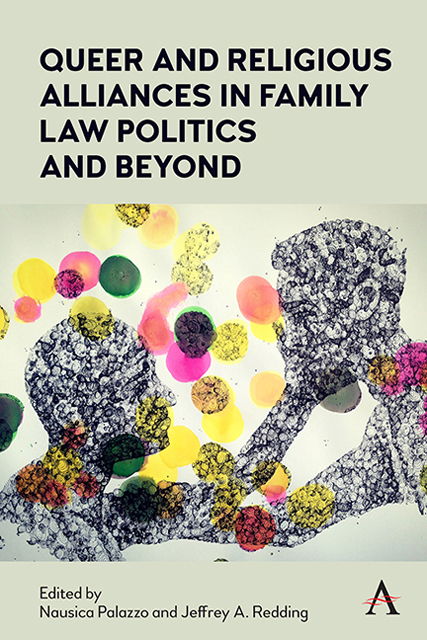Chapter 3 - Cleaving Marriage: Appraising the Conservative Blowback after Same-Sex Marriage
Published online by Cambridge University Press: 09 December 2022
Summary
Six years past Obergefell v. Hodges, the U.S. Supreme Court's landmark decision legalizing same-sex marriage, it is possible to dispassionately assess the dire claims about “redefining” marriage. Allowing “Adam and Steve” to marry undercuts the association between marriage and procreation, same-sex marriage opponents contended (Gallagher 2008). Of course, marriage is an important site for childrearing, too—both for opposite-sex and same-sex couples.
In the years before Obergefell, a steady drumbeat of articles claimed or assessed whether same-sex marriage would redefine marriage, crescendoing around Obergefell, as Figure 1 shows.
Public opinion polling shows Americans have come to embrace LGBT identities and same-sex marriage. With 20/20 hindsight, Chief Justice Roberts’ dissent that “[s]tealing this issue from the people will […] mak[e] a dramatic social change […] more difficult to accept” feels overblown.
What is troubling for longer-term implications of Obergefell is lawmakers’ subsequent attempts—thankfully, now mostly stalled-out—to “get the government out of the marriage business, altogether” (Ablow 2013). This is the idea that, in U.S. Senator Rand Paul's words, “the time has come to examine whether or not governmental recognition of marriage is a good idea” (2015). Religious leaders latched onto this seductively simple response. More than 700 Christian figures pledged to cleave civil and religious marriage to avoid “implicat[ing] the Church in a false definition of marriage” (Radner and Seitz 2014). Lawmakers also took up the gauntlet. But they advanced quite different conceptions of what it would mean to “end marriage” (Lindenberger 2009)— from shifting the responsibility for issuing marriage licenses to the church to redefining marriage entirely as domestic partnerships (Rutherford 2016).
The dangerous idea of radically transforming the state's relationship to marriage took hold. This occurred despite the fact that well-drawn statutory protections offering robust exemptions to religious communities could mute the impact on religious dissenters without entirely overhauling the current institution of marriage. Instead, lawmakers advanced the far more ambitious platform of cleaving marriage away from the state, taking a page from feminists. And yet those advocating for this separation—from feminists to religious advocates—presumably were concerned for vulnerable persons in their own communities, who would likely fare worse.
- Type
- Chapter
- Information
- Publisher: Anthem PressPrint publication year: 2022

